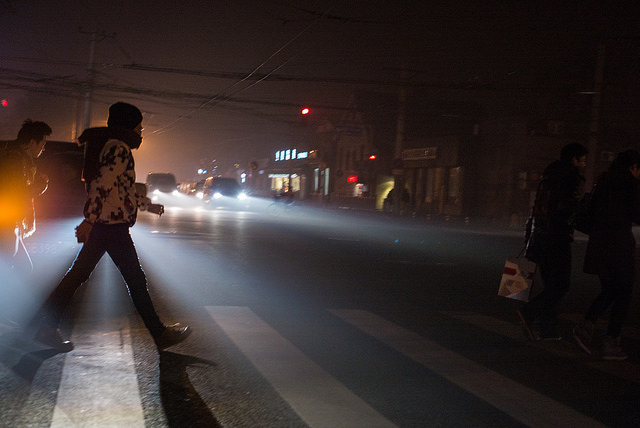
GUCHENG, China — They were the first photos Marip Lu had ever taken of her son, and it broke her heart to think they might be the last.
The 3-year-old was standing in their living room in rural China, brown eyes beaming as he watched cartoons on TV. He had no idea she was facing a heart-wrenching choice: stay with him and the family that was holding her hostage, or leave him behind and be free.
Six years earlier, Marip Lu said, she had been drugged, kidnapped and trafficked to this place far from her native Myanmar. She had been beaten, forced to “marry” a mentally disabled man, and repeatedly raped, she said — allegations her captors staunchly deny.
Marip Lu is among dozens of women from her state alone in Myanmar to be trafficked to China. The Myu Shayi women’s group says the average number of known victims from Kachin state has jumped from about 35 annually to 50 last year. Myanmar’s government has reported over 1,100 cases in the country since 2010.
Human rights workers say the phenomenon, known as “bride-trafficking,” is a direct consequence of the country’s former one-child policy, which skewed the nation’s gender balance for decades. Today, there are over 30 million more men than women.
The Associated Press pieced together Marip Lu’s story through interviews with her, family members, the group that orchestrated her rescue, and the couple accused of holding her. While the couple insisted she was neither abused nor raped, they were unable to explain how she ended up in their home, or how she allegedly met and “married” their mentally disabled son.
“It’s sad to talk about family affairs, and we don’t bring it up,” said the father, Li Qinggong, explaining his reluctance to talk.
Marip Lu said she was lured into China from the Myanmar town of Laiza after friends said she could get a job at a restaurant in nearby Yingjiang. She was drugged while eating breakfast one morning, and when she regained consciousness, she was racing down a highway slumped on the back of a motorcycle.
She was put on a bus, then a taxi deposited her at a house where a middle-aged couple greeted her excitedly. The couple, Li Qinggong and his wife, Xu Ying, sat beside their son, a man in his 30s named Li Mingming.
The couple instructed her to sleep in his room. That night, Li Mingming began heaving his naked body against her. But unexpectedly, he stopped. Later, she understood why: he was mentally disabled in some way.
For months, Marip Lu said, her captors never left her alone. They beat her and cursed her and forced her to do housework. Then one winter evening, they dragged her into their room. There, Li Qinggong raped her, according to Marip Lu.
She had never felt so isolated, or alone.
Weeks turned into months, then years. And on Sept. 23, 2013, Marip Lu gave birth to a boy.
Although she insists Li Qinggong was the father, the couple referred to the newborn as their “grandson.” In conversations with the AP, Li Qinggong never answered the question of whether he was the father.
Marip Lu loved the boy more than she ever thought possible. But she was also desperate to escape.
One day she found a beat-up cellphone in the trash. First she tried, secretly and unsuccessfully, to call her family. Then she began dialing numbers at random in Yunnan, a province that borders Myanmar.
Eventually, a woman answered in Kachin — a language she had not heard in years. She lived in Yingjiang, and one of her relatives was about to travel to Laiza.
Marip Lu passed on her brother-in-law’s address, and the woman knocked on his door.
Several days later, Marip Lu called home for the first time, weeping into the phone.
In Laiza, Myu Shayi took up her case. An official named Hkawn Shawng told Marip Lu to install the Chinese messaging app WeChat, which allowed them to access a digital map indicating exactly where she was.
Hkawn Shawng wrote a letter to Chinese authorities requesting a rescue.
Months later, a pair of police cars pulled up beside Marip Lu’s house in Gucheng, and took her to a station where she recounted her story. After several hours, though, they called the Chinese family to get her, saying they would come for her later.
It was unclear what happened, but Hkawn Shawng speculated police had either been bought off, or didn’t care. Police declined to speak to AP about the case.
Still, there was a Plan B: Myu Shayi would send somebody to pick her up.
On May 3, 2017, Marip Lu told her son to go to the kitchen. When he did, she ran to a motorcycle owned by the family, as her eyes welled with tears.
She drove to a nearby town, then messaged her GPS location to Myu Shayi’s driver. She spotted a man standing beside a van, and began to run.
“Quick! Get in!” the man said.
After travelling for days, they turned onto a dirt road.
It was Myanmar. Marip Lu was home.
When AP interviewed her, a year after her escape, she could not hide her hatred for the family she said held her for so long.
But in June, overcome by a desire to speak to her son, she contacted Li Qinggong. He refused to let her speak to the boy, she said, and asked if she’d told the AP what had happened.
Marip Lu wants, more than anything else, to get her boy back.
But Hkawn Shawng, the woman who helped engineer her rescue, says that is all but impossible. Her organization has spearheaded the return of more than 200 women to Myanmar since 2011.
All those with children were forced to leave them behind.